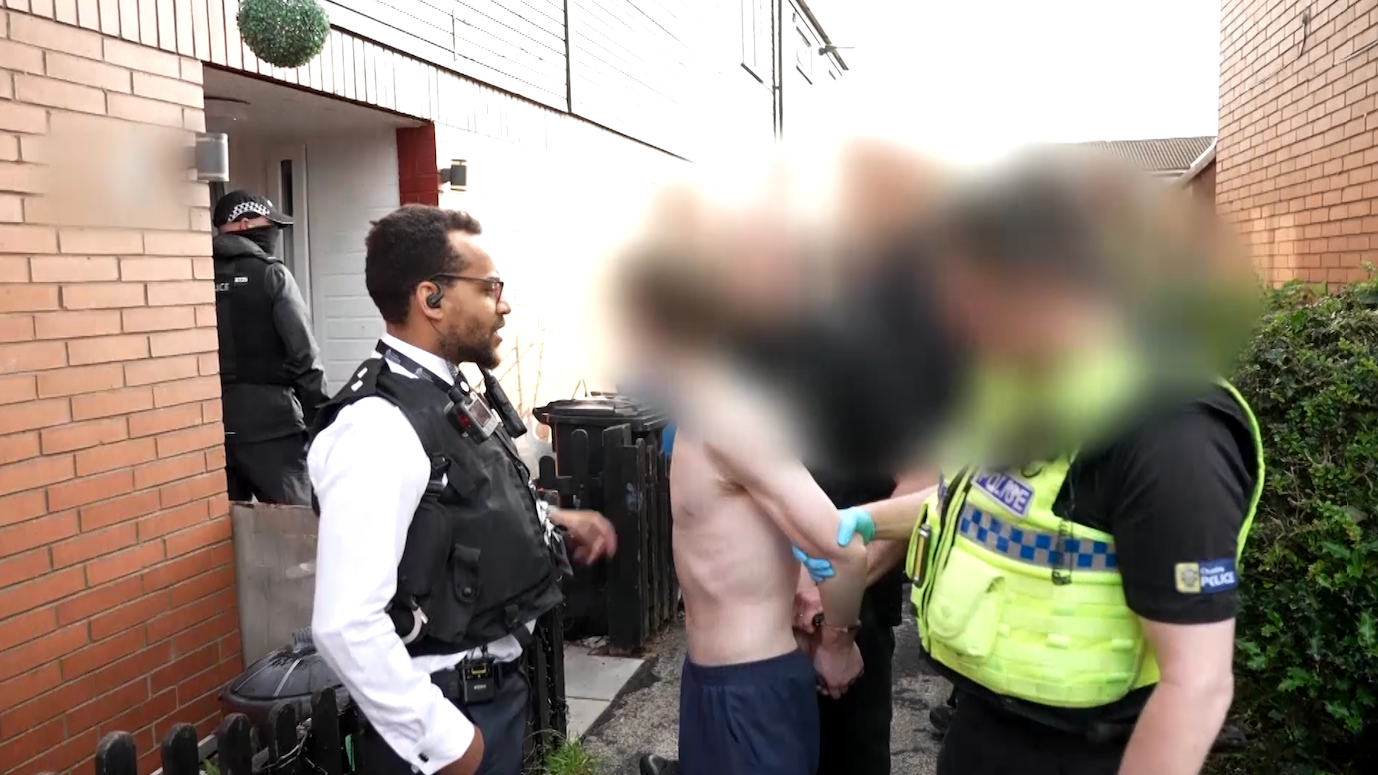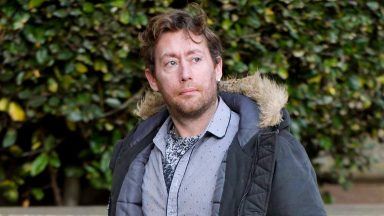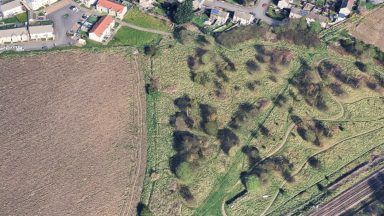Ketamine crisis ‘overwhelming’ authorities as children as young as twelve becoming ‘addicted’ to class B drug, as ITV News Digital Reporter George Hancorn found out
Children as young as 12 are becoming addicted to ketamine, opting to buying the horse tranquilliser over a packet of crisps, an exclusive report from ITV News has revealed.
Local leaders in Cheshire are battling to keep ketamine at bay across the county, with health officials warning of the “life-changing” consequences of prolonged use of the drug that 13-year-olds are understood to be dealing.
The drug is so cheap and accessible, school-aged kids are opting to buy it instead of crisps or a fizzy drink, they said.
We accompanied Cheshire Police as they carried out raids on four addresses, arresting four people – three of them teens – suspected of supplying ketamine to young people across the area.
The north-west of England appears to be a test-case for how use of the drug continues to increase with younger, teenage users across the rest of the UK.
Cheshire Police carried out raids on several addresses, including of several teens suspected of dealing ketamine.
“We’ve seen people as young as 13 involved in this. I just don’t think there’s an understanding of how dangerous this drug is,” Detective Inspector Upile Mtitimila told me.
“I’ve never seen anything like this before. Up until now ketamine has managed to stay under the radar. The consequences can be life changing and we’re working to stop that. Particularly in the North West, there’s a recognition that it is an issue.”
Over the course of our investigation, I heard multiple examples of teachers across Cheshire moving children on in school playgrounds over concerns drug dealing could be taking place.
DI Mtitimila explains this isn’t new. “This isn’t something I’m learning from you. We’re working really hard with our partners in education to make sure this isn’t happening.”
“We can’t just arrest our way out of this so for kids, we need to look at what success looks like for them and that’s all those other societal measures.”
What is ketamine and what can prolonged use of the drug do to your body?
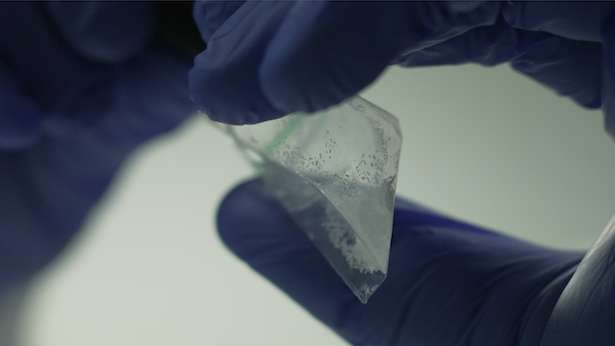
- Ketamine is an anaesthetic, often known as a horse tranquilliser, that has hallucinogenic effects.
- It distorts perceptions of sight and sound and makes the user feel disconnected and not in control.
- The drug is currently controlled as a Class B substance and the maximum penalty for supplying and producing it is up to 14 years in prison, an unlimited fine, or both.
- Long-term harms can include bladder problems and ketamine-induced cramps.
Children as young as 12 are reported to be regularly using the drug
One urology nurse in Cheshire told me she’s seen people as young as 11 and 12 with severe damage to their bladders from using ketamine.
“In my local area there are more than 30 young people currently receiving serious medical treatment from damage to their bladder,” says Claire Evans.
“We’re predicting a reduction in the life expectancy of at least 30 years for these youngsters after using the drug.”
Cheshire West and Chester Council recently joined other councils across the north-west of England in calling for emergency action to tackle the rising use in ketamine in teens across the area.
Both Lancashire County Council and Liverpool City Council have brought forward motions, warning more needs to be done to tackle the rising impact of ketamine on young people.
Motions like these help to focus funding on certain areas, with schools seen as a good way to explain some of the harms of ketamine to young people.
I spoke to a woman who has chosen to go by the name ‘Ads.’ She used to deal drugs when she was 15 and was being used, due to her age, as part of a county lines operation to sell ketamine to other young people.
Now 18 and reformed, she agreed to meet as part of our investigation.
“I see kids as young as 13 sitting in alleyways taking ketamine,” explains ‘Ads’.
“It’s sickening that dealing is going on in schools. I’ve been there and I know hard it is. Dealers threaten your family, they threaten your mates. They put you in a position where you have to do it.”
‘I was watching my son crawl along the floor’
The town of Ellesmere Port appears to be particularly badly hit by young users of the drug, and parents who have had first-hand experience of their children becoming addicted to the drug are calling for more funding to help reach other families who may also be impacted.
Faye, whose son we’ve decided not to identify, set up a petition calling on local leaders to provide more support.
Since then, she’s been inundated with other parents and young people who are facing a similar battle.
“The number of calls I’ve taken from other people is unbelievable.
“I know for a fact round here, the youngest person using ketamine in year 6 in primary school and that’s really scary.”
Faye’s son started using the drug in his early 20s. He’s now clean and in recovery, but she watched him deteriorate pretty quickly.
“I was watching my son crawl along the floor and the only way to ease the pain from those cramps was more ketamine.”
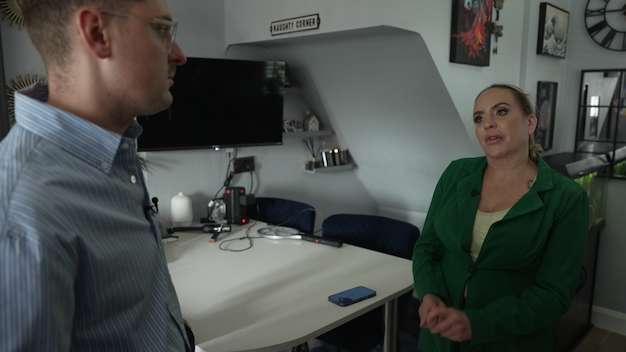
‘The drug is so cheap. It’s as easy to get as a bag of crisps and a can of pop’
Just 15 miles away from Ellesmere Port, clinicians at Oasis Recovery Runcorn – a UK Addiction Treatment Centres (UKAT) facility – say they’re overwhelmed by the numbers of young people being admitted to the clinic as a result of prolonged ketamine use from an early age.
“Ketamine is really bad problem in this area and we are seeing admission for it grow exponentially at the moment.”
“If things carry on the way they are at the moment, we won’t be able to treat anyone else in six months’ time,” explains Claire McGlynn, senior therapist at the centre.
“Based on what we’re currently seeing, we’ll be completely out of space, and people won’t be able to get help and that terrifies me.”
The low cost of the drug is something that experts put the rising use of young people down to.
“It’s really, really cheap,” says McGlynn.
“It’s as easy to get as a packet of crisps and a can of pop.”
Ketamine is very widespread’
One part of the solution, according to some health experts, is an increase in harm reduction messaging and more testing – something bereaved families who have lost their children to the drug have long been calling for.
MANDRAKE at Manchester Metropolitan University is England’s first publicly-funded permanent city-centre based testing facility. The team regularly test substances confiscated by police and handed over at night time venues, and have a good steer of how drugs markets ebb and flow.
“Ketamine is very widespread at the moment. It’s relatively cheap and pure and doesn’t suffer the same adulteration as other recreational drugs on the market”, Dr Oliver Sutcliffe, who leads the team of scientists at MANDRAKE explains.
“About a third of all the samples we regularly test from the nighttime economy are ketamine.”
Dr Oliver Sutcliffe explains how widespread ketamine is.
Should ketamine be made a Class A drug?
The government are currently reviewing evidence from the Advisory Council on the Misuse of Drugs on whether ketamine should be reclassified from a Class B drug to a Class A.
“The government should consider recommendations from any report which might include more education to those user groups and increased testing.
“I think reclassification is difficult to say if it’s the ‘one thing’ that would work, I think you need to look holistically at all the other recommendations together.”
The Home Office wouldn’t confirm whether the move to reclassify would take place, but said: “We are seeking advice from the Advisory Council on the Misuse of Drugs on reclassifying ketamine to become a Class A substance.
“Through our Plan for Change and mission to make the nation’s streets safer, we will work with public services including health and policing, to drive down drug use and stop those who profit from its supply.”
Those arrested by Cheshire Police as part of their ongoing investigation have been released on bail.
Stream ‘Ketamine: The Teen Crisis’ on ITVX or on the ITV News YouTube now.
If you are affected by any of the issues raised in this report, please find support at ITV.com/helplines, FRANK or The UKAT Group website.
Follow STV News on WhatsApp
Scan the QR code on your mobile device for all the latest news from around the country


